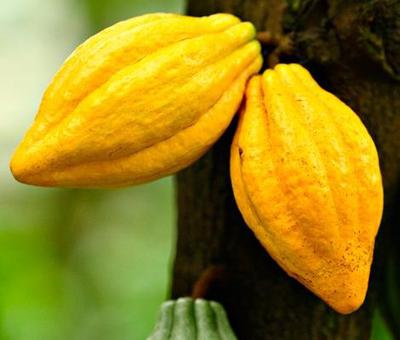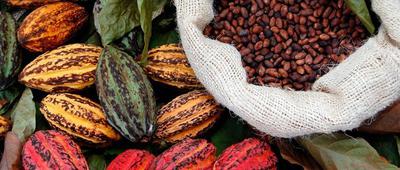Cocoa Season in Bafia, South West Region of Cameroon
by P. MONJI

Cocoa Season in Bafia, South West Region of Cameroon

Cocoa Season in Bafia, South West Region of Cameroon
The Bafia village, located in the Muyuka Sub-Division of the South West Region of Cameroon, is a picturesque place surrounded by natural beauty. It shares borders with notable landmarks such as Mount Cameroon to the north, Camdev C.D.C to the south, mile 14 Lykoko to the east, and Ikata village to the west.
Home to the Bakwerians, the indigenous people of the area, Bafia has a modest population of around eleven thousand inhabitants. The majority of the residents hail from the grass field regions of North West and West Cameroon, making the indigenous population relatively small.
Education is valued in Bafia, evident by the presence of four nursery and primary schools. These include the Government nursery and Primary School, the Presbyterian nursery and Primary School, the New Generation Nursery and Primary School, and the Cameroon Baptist Convention Primary School. Additionally, the village boasts a Government Secondary School, ensuring that the youth have access to quality education.
When it comes to healthcare, Bafia is well-served by a fully equipped health center staffed with trained nurses from reputable medical institutions in Cameroon. Medicine stores are conveniently scattered throughout the village, and the health center even houses a pro-pharmacy funded by G.I.Z.
The village is not only a hub for education and healthcare but also a center for politics. It serves as a battleground for the ruling C.P.D.M party and the opposing S.D.F. party, reflecting the active engagement of the villagers in political affairs.
Sports play a significant role in the village's social fabric. Despite the challenges faced by the former Second-Division Team, Union Bafia, due to mismanagement, the spirit of football remains alive through inter-quarter football competitions organized during summer holidays. Generous individuals and organizations, such as Inventor Forzi Alfred, Pa Philip Fomba, Mr Ngamnchack Andrew of Andy's Pharmacy Buea Town, Miss Bapmu Justine, The B.A.R.O.N.S, and B.A.LE.C, donate trophies for these competitions. Bafia has also produced talented football players like Walang Roland of Botafogo A.F.C and Ngawe John, who currently plays with Ikata Farmers F.C.
The villagers of Bafia are known for their warm and welcoming nature, creating a friendly environment for residents and visitors alike. A central bar provides a relaxing space for socializing, accompanied by a variety of snacks. Numerous youth groups, ranging from social to cultural, contribute to the vibrant community. Notable groups include the Bafia Up Town Youths Association, Stone Quarter Youths Association, Three Corners Youths Association, The BARONS, Californian Young Stars, and The B.A.L.E.C.I.A.N.S. Furthermore, branch associations such as the Dynamic Youths Association, Progressive Youths Association, and Standard Youths Association add to the cultural diversity of the village.
Bafia owes much of its development to the efforts of settlers from different parts of the country, who have contributed to the construction of impressive buildings. The village organizes community work once a month, involving every resident. The Traditional Council enforces fines on those who fail to participate. While the roads remain untarred, the village benefits from piped water thanks to the Canadian Aid Programme to Cameroon. Electricity is scarce, but the resourceful villagers manage with generators and traditional "bush lamps." Video halls provide entertainment for the youth, attracting crowds especially at night.
Cocoa reigns as the main cash crop in Bafia. However, the women of the village engage in weekly sales of cocoyam, maize, vegetables, egusi, and other foodstuffs. The cocoa season, spanning from September to December, holds immense significance for the villagers. People from all over the country flock to Bafia to sell their goods during this period, resulting in a bustling atmosphere.
Unfortunately, the cocoa season also sees the arrival of girls engaging in prostitution, leading to an increase in divorces. These girls, nicknamed "Cocoa-Students" by the villagers, come solely for this season and disappear once it concludes.
During the cocoa season, the aroma of roasted fish and the sound of cooking fill the air, highlighting the heightened economic activities. However, with the departure of the girls, there is a mass reconciliation as boys and men return to their former girlfriends and wives.
After this eventful period, life in Bafia returns to normal until the following September when the cycle starts again, turning the village upside down until December.
Have your say about what you just read! Leave me a comment in the box below.




